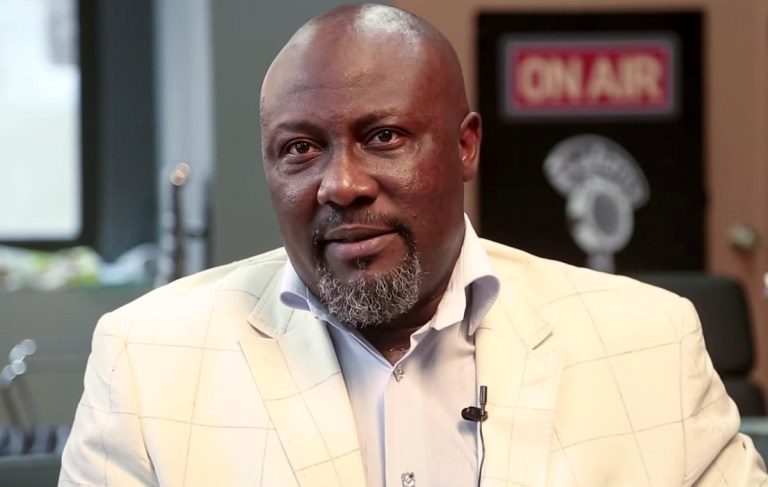Arize Nwobu
In a recent press report, former Minister of Finance and Coordinating Minister of the Economy, now Director- General, World Trade Organisation (WTO), Dr Ngozi Okonjo-Iweala acknowledged the economic reforms of President Bola Ahmed Tinubu.
Okonjo- Iweala gave credit to president Bola Tinubu for the stability of the economy and further noted that the reforms had been in the right direction and that what was needed next was growth.
Economic stability in the context imply that there is less fluctuation of the major macroeconomic indicators such as exchange rate, inflation rate, gross domestic products (GDP) growth rate etc.
It does not necessarily mean the end of economic struggles difficulties but it entails that the economy is on a more balanced pedestal and with less fluctuations of the essential indicators.
The policies of the Central Bank of Nigeria (CBN) are pivotal in engendering the economic stability.
CBN Governor, Olayemi Cardoso had noted that: “CBN will continue implementing policies that enhance macroeconomic stability, promote private sector growth and create high quality jobs.”
The consistent increase in the Monetary Policy Rate (MPR) and the adjustment of other monetary policy tools by CBN have contributed to the fall in inflation rate since January 2025 when inflation was 24.5 percent. It dropped to 22.22 percent in June and further to 21.88 percent in July, 2025.
There is a correlation between inflation and economic stability. High inflation rate leads to economic instability and vice versa.
Low inflation rate increases aggregate demand which triggers productivity and greater stability in the economy.
It is therefore remarkable that CBN’s tight monetary policy is contributing to the deescalation of inflationary pressure and engendering economic stability.
There is also a correlation between economic stability and financial system stability. A robust financial system engenders macroeconomic stability which enables businesses to plan with greater degree of certainty and also attract both local and foreign investors which leads to growth.
CBN prioritises financial system stability and has put in place robust frameworks that would adequately promote stability.
The apex bank has been effectively monitoring banks and other financial institutions under its regulatory purview and ensuring that any emerging issues are promptly addressed to protect the integrity of the financial system.
Banks are the most important financial intermediary especially in developing countries and which is why they seem to be the most regulated to ensure their stability and macroeconomic stability.
Recently, in a bid to strengthen the capital buffers of some banks that are operating under CBN’s forbearance supervision since the COVID-19 era, the apex bank , in a circular dated June 13, 2025, directed such banks to suspend the payment of bonuses to Directors and Senior Management staff and refrain from making investments in foreign subsidiaries or new off-shore ventures.
CBN noted that the directive would remain effective until the following conditions are met: 1. The entire exiting of regulatory forbearance before dividends and staff bonuses can be shared and continental expansion can resume. 2. The banks’ capital adequacy and provisioning levels are independently verified to be within acceptable regulatory standards. In further clarification, the Acting Director, Corporate Communications, Mrs Hakama Sidi- Ali, in a press release dated June 17, 2025, said among other things, that “Nigerian banking sector remains fundamentally strong.”
She noted that the measures were neither unusual nor cause for concern as they were a continuation of the orderly and deliberate implementation of reforms already underway.
Sidi- Ali further noted that CBN would continue to take all necessary actions to safeguard the banking sector’s stability and ensure a robust, resilient financial ecosystem that supports sustainable growth.
It will be recalled that that CBN also implemented a similar policy in 2018 to strengthen the capital buffers and protect the integrity of the banks especially those with high Non- Performing Loans (NPLs) and Low Capital Adequacy Ratio (CAR).
Non- Performing Loans are noted as one of the major causes of financial system instability. It disrupts banks’ earnings and reduces available capital thereby leading to low capital base which hampers subsequent lending.
The policy was in tandem with the Consumer Protection Framework For Banks and Other Financial Institutions under CBN’s regulatory purview and which aims to promote stable financial system and economy.
To ensure strict compliance, CBN mandated banks to submit their Board approved dividend payout policy before payment of dividend would be permitted. And to curb non- performing loans CBN directed that bank Directors who were culprits should quit or be sacked.
Other CBN policies which have contributed to enhance economic stability include the unified exchange rate and the Electronic Foreign Exchange Matching System( EFEMS).
EFEMS reduced volatility in the foreign exchange market by reducing speculative activities and distortions and enabling real-time price discovery in the foreign exchange market.
It also enhances oversight and allows better regulation and monitoring foreign exchange activities.
Economist and Chief Executive Officer, Financial Derivatives, Mr Bismarck Rewane acknowledged that Nigeria’s currency had stabilised and credited it to CBN’s monetary framework and transparency in the foreign exchange market.
Going forward, it is expected that both the federal government and CBN would continue to initiate policy measures that would fully reestablish confidence and stability in the economy, engender growth and with the effects impacting positively on citizens.
Nwobu, a Chartered Stockbroker and Business Journalist wrote via arizenwobu@yahoo.com Tel: 08033021230.
The post Stabilising the Economy and Going Forward appeared first on THISDAYLIVE.

